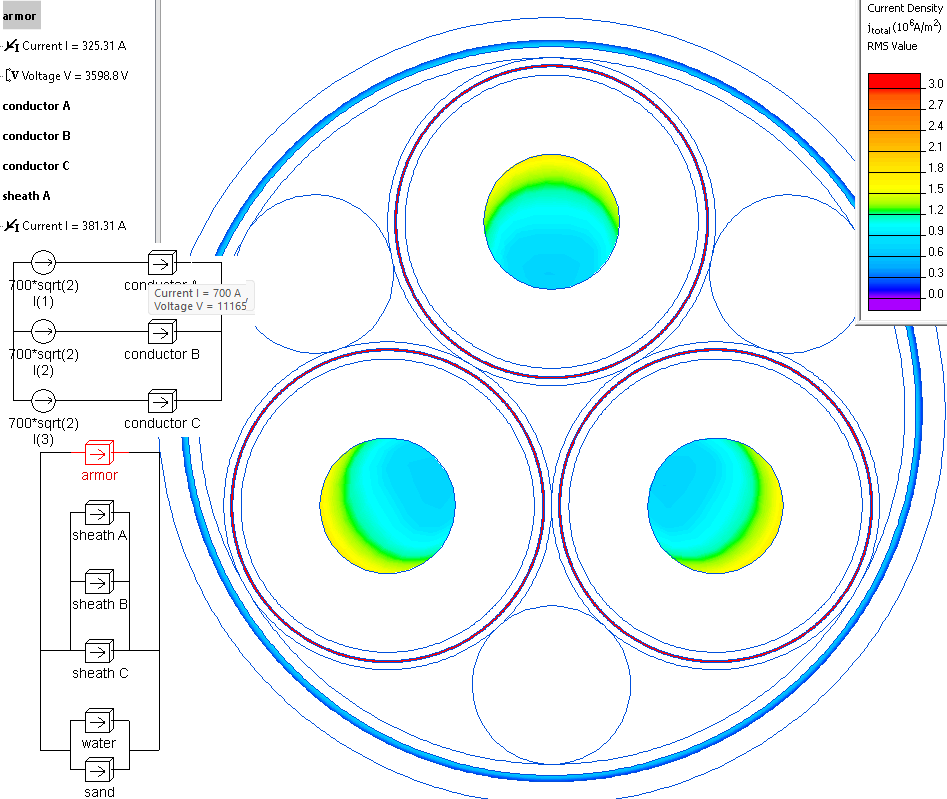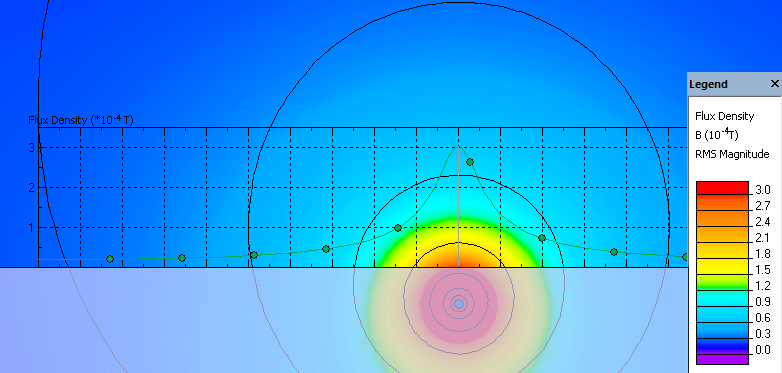Submarine power cable
QuickField simulation example
A three phase submarine power cable is buried in the sea bed.*
Problem Type
Plane-parallel problem of AC magnetics
Geometry
Cable length is 10 km.
Given
Conductor current (r.m.s. value) I = 700 A, frequency 50 Hz.
Media conductivity: copper 58 MS/m, lead 5 MS/m, steel 1.1 MS/m, sea water 5 S/m, sand 1 S/m.
Armor (steel wire) relative magnetic permeability 300.
Task
Calculate the currents in the sheaves and armour and the magnetic flux density in the water above the cable.
Solution
Real cable includes many thin layers of semiconducting tape, used to eliminate local electric field disturbances, caused by the conductor surface irregularities. In this example we do not study these irregularities, the conductors are modelled as solid bodies with smooth surfaces, so the semiconducting layers are simulated as a part of main insulation.
In QuickField we should specify the peak values of currents that are √2 times more than r.m.s. values.
The armor and sheaths are grounded on each side and thewater and the sea-bed provide the natural return path for the currents. The conductor's connection is specified in the electric circuit.
Result
Induced current in the sheath is 381 A, induced current in the armor is 325 A. Voltage drop in phase conductor is 11.1 kV per 10 km.

Magnetic flux density in the water above the cable does not exceed 0.3 mT (root mean square value).

Reference
*The idea of this example is inspired by the paper: Andrew B Gill, Yi Huang, Joe Spencer, and Ian Gloyne-Philips Electromagnetic Fields emitted by High Voltage Alternating Current Offshore Wind Power Cables and interactions with marine organisms
- Download simulation files (files may be viewed using any QuickField Edition).